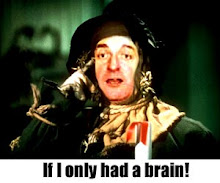Fantomas Revisited
For the long weekend I borrowed two films I have long wanted to see: Fritz Lang's 'Dr Mabuse, the Gambler' and its sequel, 'The Testament of Dr Mabuse'. The first is silent, the second isn't (though in German). Naturally, given that they deal with ubercriminal, Dr Mabuse, a master of disguise, there are a lot of similarities with their French precursor, Fantomas.
I suddenly realised that I never followed up my comments on Fantomas. I finished watching all of Louis Feuillade's silent series some time ago, but they did make an impression. In contrast to a lot of silent product of the time, Fantomas is slick entertainment. Hampered by some truly ropey storylines, and an extreme facial hair fetish on the part not only of the criminal, but his nemesis, Inspector Juve, it does work remarkably well 90 years later. I can understand the many remakes made throughout the 20th Century and the claim that it influenced everything from James Bond to 'The Usual Suspects'. It is the seminal work the critics claim.
There were several Fantomas serials. Each one is prefaced by shots of the lead in the various guises he will adopt, so surprise is not possible (not thata two-year old would be fooled by the shoddy beards and wigs Fantomas wears). Invariably using his accomplice/lover, Lady Beltram, he stages a wide range of audacious crimes, always pursued by plump Inspector Juve. Juve is not above a little extra hair himself and on occasion infiltrates the criminal's gang, ultimately to no avail. Fantomas always escapes for more mayhem.
Distinguishing the films is a style of direction that seems very modern. There are De Palma-style set pieces involving elevators and crashing trains. Sometimes, however, the ambition outstrips the resources as when Juve and his helper the reporter, Fandor, escape a 'raging' fire (a couple of small bonfires) in some barrels. Many of the storylines occur in the open air, giving an almost documentary feel to some of the city episodes.
What is really interesting though is the character of Fantomas himself, who is unrepentingly evil. I suppose he is capable of charm, but it is made clear that the fascination he elicits in his reluctant mistress, Lady Beltham, is based on his cruelty. Indeed it is his unrelenting sadism that really keeps the audience watching, although the not-as-dumb-as-he-looks Inspector Juve gives us someone to root for too.
Despite the attraction of the sadistic madman, and the panache of the productions, it is still very silly stuff, full of easy coincidences and a dependence on conveniently ubiquitous laundry baskets for hiding places. The bizarre methods of escape the eponymous anti-hero employs (from false arms to hidden pits) may allow for a sequel, but left this viewer groaning. Still it's almost worth it and if, like me, you have a fondness for cinema's milestones, the many escapades of Fantomas deserve at least a peek.


1 Comments:
a while back the Fantomas books (or the first one at least) came back into print in English. I wish I had bought them, they seem really fascinating. I am curious as to how they work in narrative terms, as in whether you are meant to go "huzzah Fantomas escapes again, he may be a badass but he is kewl" or whether the books allow the cop to go "Well, Fantomas may have escaped with the diamonds, but at least we stopped him from infecting everyone in Paris with cholera".
Post a Comment
<< Home